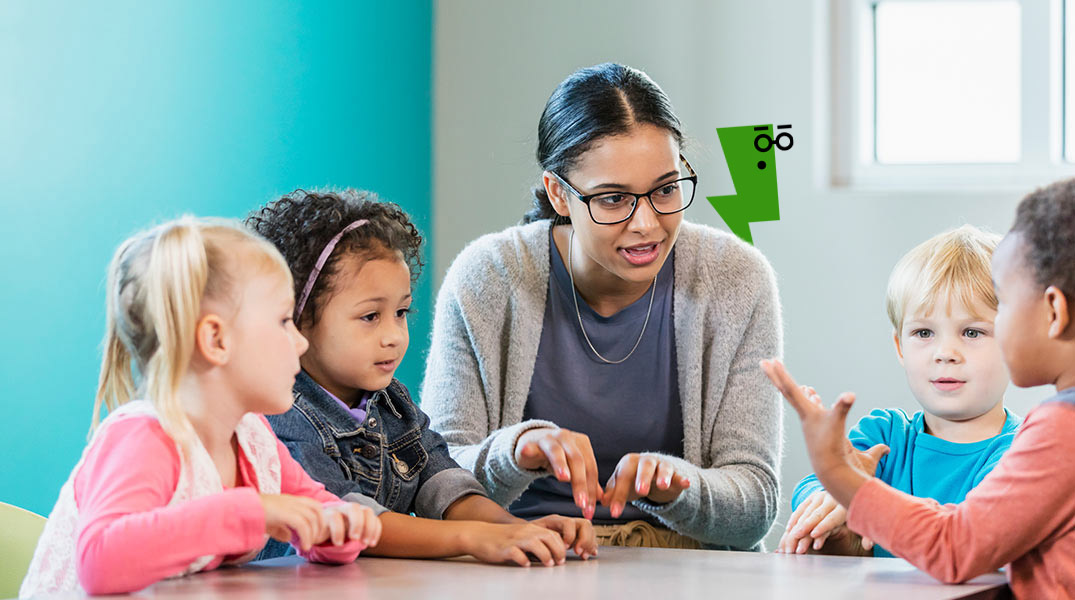Educators and professionals
We design innovative tools and training for thousands of nursery staff and teachers. Let us help you, help your students.

Tools and training
Whether you’re working with early years, primary or secondary students, we can help you support children who struggle with talking and understanding words. Have a look at our training, programmes and resources below.
SEND reform: Where does speech and language fit in?

-
Signs and symptoms
Learn more about the signs and symptoms children struggling with talking and understanding words may experience.
Read more
-
Ages and stages
Our guide to the typical stages of speech and language development in babies, children, and young people to help educators and professionals.
Read more
-

Programmes for nurseries and schools
Our programmes help children who struggle with talking and understanding words by giving them the skills they need.
Read more
-
Training courses
Whether you’re working with early years, primary or secondary students, we can help you support children who struggle with talking and understanding words.
Read more
-
Resource library for educators
Check out our range of free resources for educators and professionals, designed to help you support the 2 million children facing challenges with talking and understanding words.
Read more
-
Developmental Language Disorder (DLD) educational support
Discover ways to support students with Developmental Language Disorder (DLD) in the classroom.
Read more
-
What Works database
A database of evidenced interventions to support children’s speech, language and communication skills.
Read more
-
Information for speech and language therapists
Information for speech and language therapists to help you support our work.
Read more
-
Information for Inspectors
Information about the scale of the issue and best practice for supporting children and young people struggling with talking and understanding words in school.
Read more
Become a tutor!

Children's progress checker
Our progress checker is based on what we know about how babies and children develop skills. Choose the age of the child and then answer the questions. At the end, we will direct you to some helpful advice and resources.

Share your experience

